The 10 Best Vegetables To Reduce Inflammation, According to Science

Inflammation is a silent killer. According to the Harvard Medical School, persistent, low-grade inflammation (also called chronic inflammation) can lead to some of the top causes of death worldwide, including heart disease, type 2 diabetes, and cancer. The good news though is you can combat inflammation through your diet, and incorporating more anti-inflammatory vegetables is one of the best ways.
Vegetables are essential for lowering inflammation because they’re packed with vitamins, minerals, fiber, antioxidants, and phytochemicals, which studies indicate are beneficial in reducing chronic inflammation. These nutrients help combat oxidative stress and neutralize free radicals—two common culprits that can trigger inflammation. Additionally, research suggests eating veggies can boost your gut health due to their high fiber content. A well-balanced and diverse gut microbiome can help strengthen your immune system and reduce inflammation.
We spoke with Trista Best, RD, a registered dietitian with Balance One Supplements, to identify the best vegetables to reduce inflammation and help you make healthier choices about what you put on your plate. If you’re ready to say goodbye to inflammation and hello to a healthier, happier you, read on. And when you’re finished, be sure to check out The 10 Worst Eating Habits for Inflammation.
Spinach
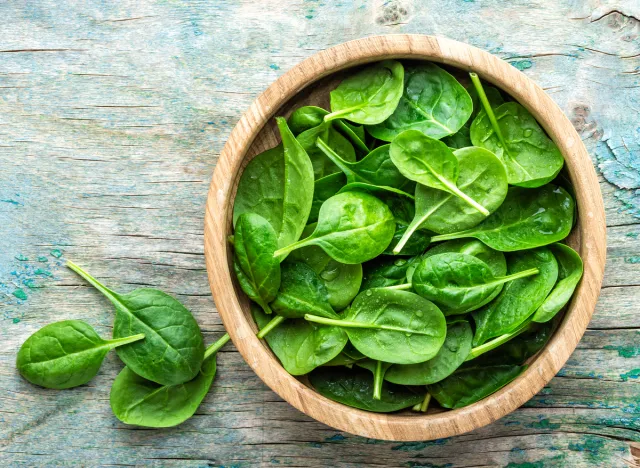
Spinach is rich in vitamins A and C and antioxidants like quercetin and kaempferol, which help fight inflammation. “This versatile leafy green can be enjoyed raw in salads or cooked in various dishes, providing a convenient way to add inflammation-fighting nutrients to your meals,” says Best. “Its high fiber content also supports digestive health and may aid in weight management.”
Kale
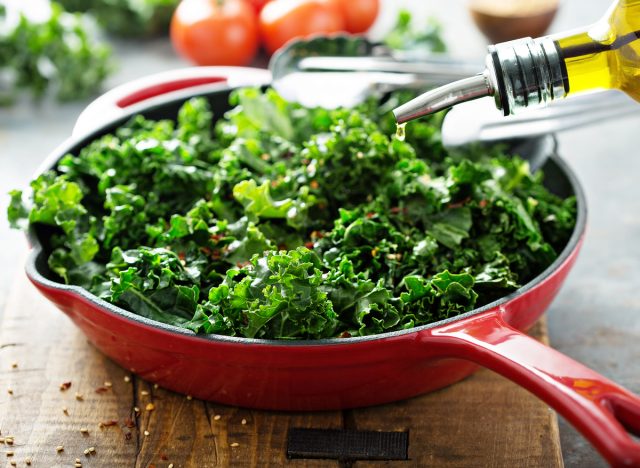

According to a 2023 study, kale can help prevent gut-induced inflammation and boost your gut health. It’s packed with essential nutrients like antioxidants, minerals, fiber, and vitamins A, C, and K, which can promote gut health and lower inflammation.
“With its sturdy leaves and earthy flavor, kale makes an excellent addition to soups, stir-fries, and smoothies, offering a nutrient-dense boost to any recipe. Additionally, its high calcium content supports bone health and may help reduce the risk of osteoporosis,” says Best.
Broccoli
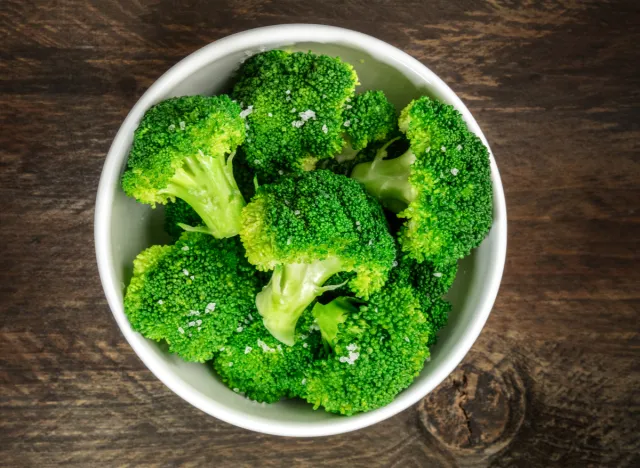

Broccoli is an excellent source of sulforaphane, an antioxidant with potent anti-inflammatory effects. It’s also rich in vitamins C and K and fiber, which studies show can help reduce inflammation and improve insulin resistance.
Best tells us, “Whether steamed, roasted, or added to stir-fries, broccoli provides a delicious way to incorporate anti-inflammatory compounds into your diet while supporting detoxification processes in the body. Its abundance of fiber promotes satiety and aids in digestion, promoting overall gut health.”
Bell Peppers
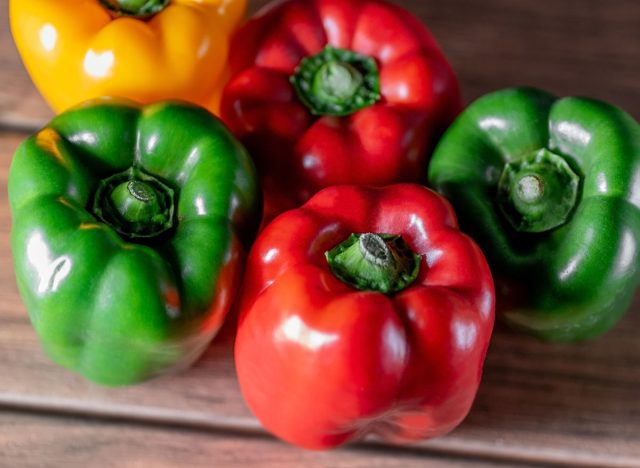

Bell peppers (also called capsicum) are loaded with vitamins A and C and antioxidants that can help reduce inflammation and protect against degenerative diseases. “Available in various vibrant colors, bell peppers add flavor and crunch to dishes while supplying a hefty dose of antioxidants to combat inflammation and support immune function,” says Best. “Their low calorie and high water content make them an excellent choice for weight management and hydration.”
Tomatoes
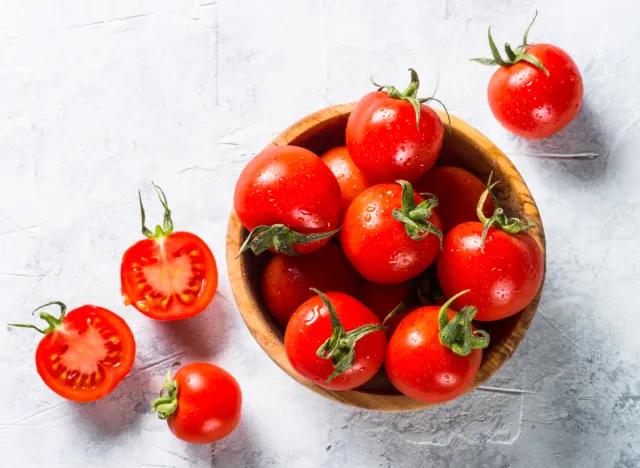

Tomatoes are rich in lycopene, an antioxidant with powerful anti-inflammatory properties. Best explains, “Tomatoes are delicious in salads, sauces, and sandwiches and offer a rich source of lycopene, which has been linked to reduced inflammation and lower risk of chronic diseases. Additionally, their high potassium content helps regulate blood pressure and supports heart health.”
Carrots
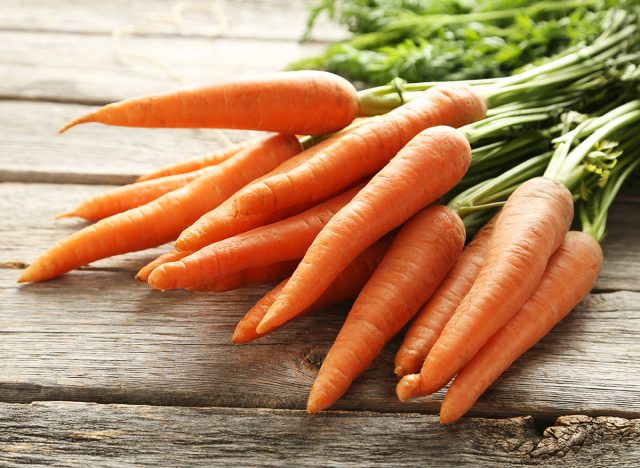

Carrots are a fantastic source of beta-carotene, a natural food pigment that gets converted into vitamin A in the body. Vitamin A is known to have anti-inflammatory properties that can help combat inflammation and strengthen your immune system. “Whether enjoyed raw as a crunchy snack or cooked in stews and roasts, carrots provide a sweet flavor along with a plethora of anti-inflammatory nutrients. Their beta-carotene content also supports eye health and may reduce the risk of age-related macular degeneration,” says Best.
Beets
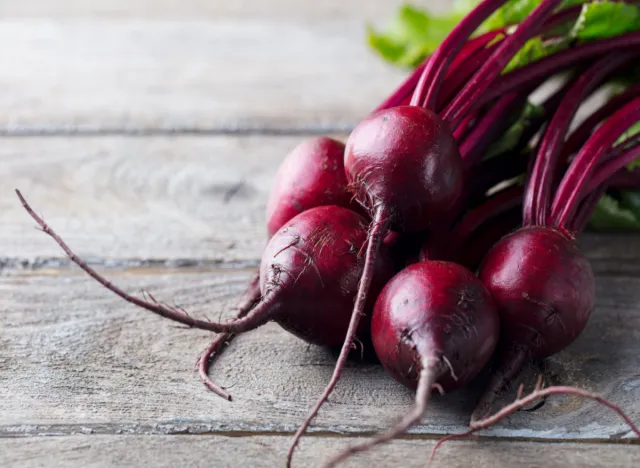

A 2021 review found that beets contain compounds called betalains that have been shown to help lower inflammation. “Beets can be roasted, boiled, or grated raw into salads, offering a unique earthy sweetness along with anti-inflammatory benefits,” explains Best. “Their nitrates may improve athletic performance and enhance blood flow, promoting cardiovascular health.”
Garlic
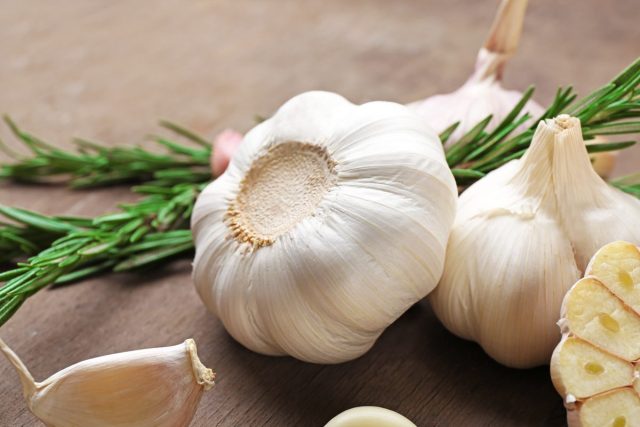

According to a 2020 review, garlic contains sulfur compounds and antioxidants that can help reduce inflammation and protect against chronic diseases, including cardiovascular disease and cancer.
Best says, “A staple in many cuisines, garlic adds depth of flavor to dishes while providing potent anti-inflammatory and immune-boosting effects. Its antimicrobial properties may also help combat infections and support oral health.”
Onions
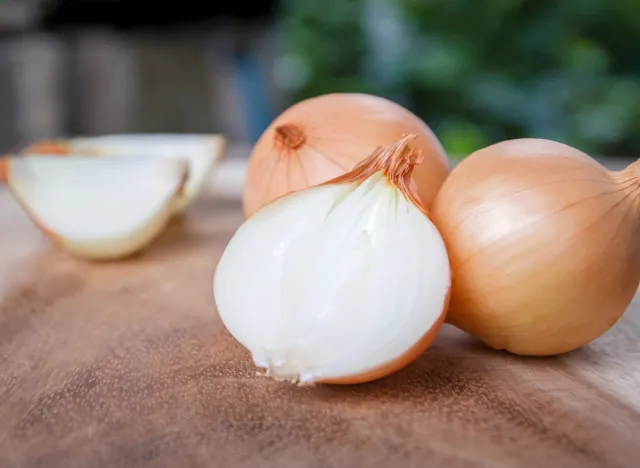

Onions contain quercetin, a flavonoid shown to have anti-inflammatory effects. They’re also rich in vitamin C, which can help reduce inflammation and support immune function. “Onions lend a savory depth to dishes and provide quercetin and other flavonoids that help reduce inflammation and promote heart health,” says Best. “Additionally, their prebiotic fibers nourish beneficial gut bacteria, supporting digestive wellness.”
Celery
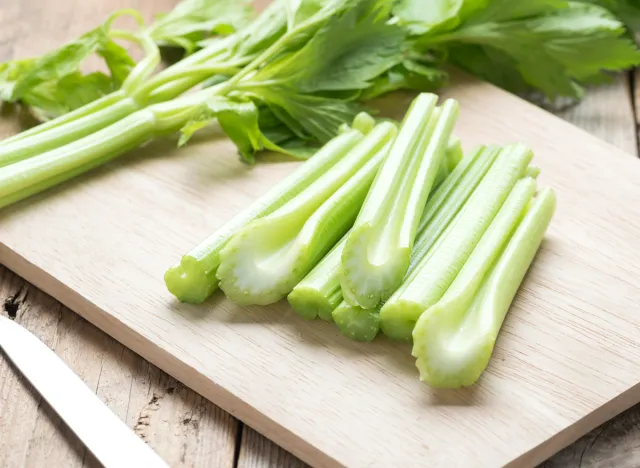

Celery is a low-calorie veggie rich in antioxidants and anti-inflammatory compounds. Experimental studies suggest celery provides anti-inflammatory and anti-fungal benefits to support overall health. “With its crisp texture and mild flavor, celery is a versatile addition to salads, soups, and snacks,” says Best. “It offers anti-inflammatory and antioxidant benefits. Its natural diuretic properties may help reduce bloating and support kidney health.”








